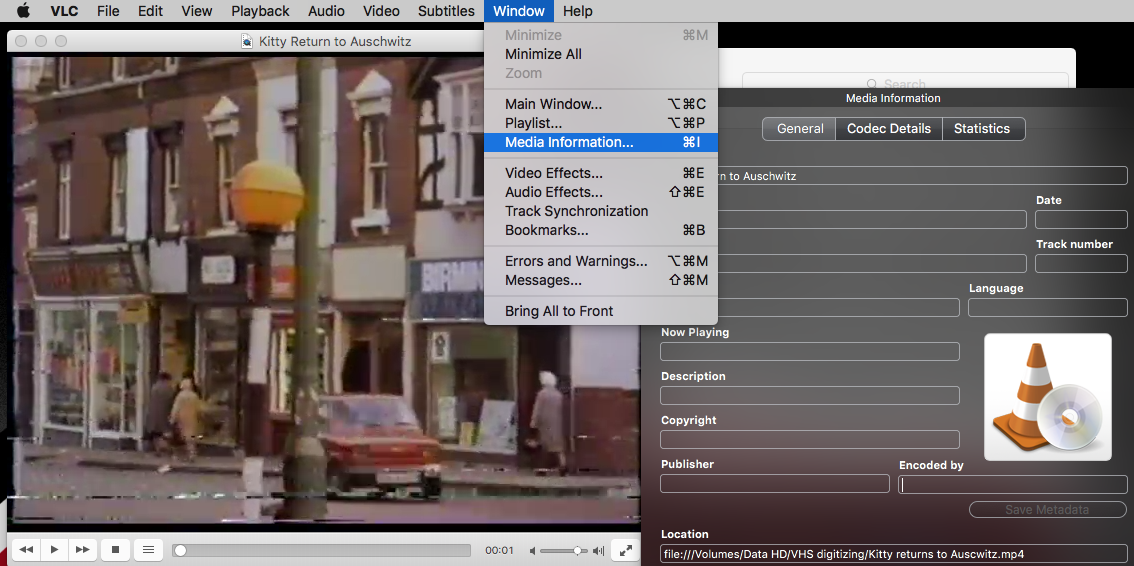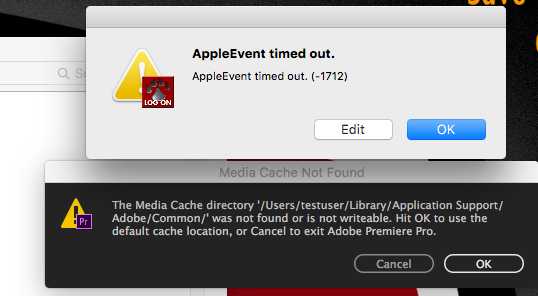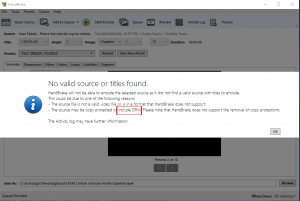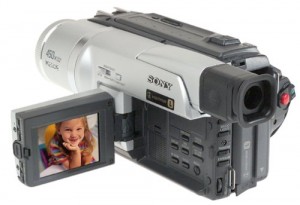Below is informative exchange on how to subtitle course capture (screencast):
Are we talking Camtasia Studio or Relay?
Relay no longer publishes to Flash – it was replaced with MP4 and a “Smart Player” – and the subtitling is stored in an XML file that is dynamically read by the Smart Player.
I can confirm that Studio burns the captions into an MP4, as Steve points out.
-Jeremy
Jeremy Anderson
Instructional Technologist
203.582.3792 | jjanderson@quinnipiac.edu
From: The EDUCAUSE Blended and Online Learning Constituent Group Listserv [mailto:BLEND-ONLINE@LISTSERV.EDUCAUSE.EDU] On Behalf Of Covello, Steve
Sent: Friday, May 10, 2013 2:52 PM
To: BLEND-ONLINE@LISTSERV.EDUCAUSE.EDU
Subject: Re: [BLEND-ONLINE] Subtitling Screencasts
Camtasia captioning is burn-in, as far as I know (at least in Mac 2). So I don’t think Flash is an aspect of it unless that is the format you are exporting it as.
– Steve
—
Steve Covello
Rich Media Specialist/Online Instructor
Granite State College
603-513-1346
Skype: steve.granitestate
Scheduling: http://meetme.so/stevecovello
From: Frank Lowney <frank.lowney@GCSU.EDU>
Reply-To: The EDUCAUSE Blended and Online Learning Constituent Group Listserv <BLEND-ONLINE@LISTSERV.EDUCAUSE.EDU>
Date: Friday, May 10, 2013 2:42 PM
To: “BLEND-ONLINE@LISTSERV.EDUCAUSE.EDU” <BLEND-ONLINE@LISTSERV.EDUCAUSE.EDU>
Subject: Re: [BLEND-ONLINE] Subtitling Screencasts
Both ScreenFlow (Mac-only) and Camtasia (Mac/Win) support subtitling. Both are excellent screencast applications but I prefer ScreenFlow because it creates MPEG-4 files whereas Camtasia requires Flash for subtitles and that pretty much rules out mobile.
If these screencastsare made with some other, less expensive apps, I suggest using free, open source apps. There are many but I prefer Jubler for creating subtitles and Subler for installing them in MPEG-4 files. These are Mac apps.
I’ve recently come across CapScribe which is free to education and plan to look it over carefully. It looks very promising: http://www.inclusivemedia.ca/services/capscribe.shtml This is also Mac-only.
On May 10, 2013, at 12:00 AM, BLEND-ONLINE automatic digest system <LISTSERV@LISTSERV.EDUCAUSE.EDU> wrote:
Hello!
In creating accessible online and blended courses, one of the challenges we
are dealing with is making sure faculty created videos (narrated
PowerPoints, screencasts, etc.) are accessible. I would love to hear how
others are handling this. Do you recommend/require that these videos be
closed captioned? If so, who is responsible for creating the closed
captions? Do you have staff on campus that do this or is it the faculty
member’s responsibility? Or do you use a service? Can you recommend any
software that helps someone easily create closed captions or a service that
can provide this?
Thank you so much,
Andrea
—
Andrea Milligan
Director of Instructional Technology and Design
North Shore Community College
1 Ferncroft Road
Danvers, MA 01923
978-739-5425
==================================================================
Dr. Frank Lowney Georgia College & State University
Projects Coordinator, Digital Innovation Group @ Georgia College
Chappell Hall 212 (CBX 106)
Web Site, Blog, GCSU Email, iCloud Email
My latest book: The Coming ePublishing Revolution in Higher Education
Voice: (478) 445-1344
NOTICE: Please be advised that I am hearing impaired and communicate most effectively via e-mail. Follow-up summaries of telephone conversations by e-mail are most appreciated.
SCSU library digitizing VHS tapes
- plan
- hardware and software
- digitizing process
- archiving process
- issues
- correspondence among Greg J, Tom H and Plamen
- correspondence on the LITA listserv regarding “best practices for in house digital conversion”
- Plan
- collecting (Identifying VHS to digitize)
- clearing (Digitize or not digitize?):
- duplicates (Checking collection for content in other formats)
- establishing if DVD can be purchased (Availability for sale new)
- clearing copyrights etc. (Copyright / fair use review )
- Digitizing the tapes
- Adobe Premiere CC
- Capture
- metadata

- this why metadata was entered in the post-processed MP4 file using the VLC player

- export
H.264 . / iPAD 480p 29.9 fps
Shortcuts:
If you are using Premiere CC: 1. File/New/Sequence. 2. Ctrl M is the shortcut to export (M is for media)
Issues
the two Apple/Macs will deliver error messages with both the export to the MP4 format and for burning the CDs and DVDs.
e.g.
- other issues
regular restart required for new capture
error messages e.g.

other issues:
audio. Audio synchronization during the digitization is off. Solution: possible solution is the last of this thread : https://forums.adobe.com/thread/2217377
open in in QT Pro copy an segment then past it into a new QT file and save. It then plays normally in Adobe products.
old Apple desktops. needed to be rebuild and reformatted.
Apple burner issues. issues with Premiere license (bigger organization, bigger bureaucracy – keep the licenses within the library, not with IT or the business department)
old VCRs – one of the VCRs was recording bad audio signal
old VHS tapes: the signal jump makes the digital recording stop, thus requiring a constant attendance of the digitization, instead of letting it be digitized and working on something else

Upon upload to MediaSpace,

the person who is uploading the digitized VHS movies can “Add Collaborator”

The collaborator can be “co-editor” and / or “co-publisher”


Thus, at the moment, Tom Hegert has been designated to a digitized VHS video as Co-:Publisher and Rhonda Huisman as “Co-Editor.”
Please DO log in into MediaSpace with your STAR ID and confirm that you can locate the video and you can, respectively edit its metadata.
If you can edit the video, this means that the proposed system will work, since the Library can follow the same pattern to “distribute” the videos to the instructors, who these videos are used by; and, respectively these instructors can further control the distribution of the videos in their classes.
- issues:
sharing the videos from the generic Library account for MediaSpace to the MediaSPace account of the faculty who had requested the digitization either through sending the link to the video or publish in channel (we called our channel “digitized VHS”)

- issue: ripping off content from DVD.
Faculty (mostly teaching online / hybrid courses) want to place teaching material from DVD to MediaSpace. Most DVDs are DRM protected.
Handbreak (https://handbrake.fr/) does not allow ripping DRM-ed DVDs.
 to bypass this Handbreak issue, we use DVD Decrypter before we run the file through Handbreak
to bypass this Handbreak issue, we use DVD Decrypter before we run the file through Handbreak
Solutions:
From: “Lanska, Jeremiah K” <Jeremiah.Lanska@ridgewater.edu>
Date: Tuesday, September 11, 2018 at 10:03 AM
I use a software on a MAC called MacX DVD Video Converter Pro.
https://www.macxdvd.com/
I convert videos to MP4 with this and it just works for just about any DVD. Then upload them to MediaSpace.
Jer Lanska Media Services Ridgewater College Jeremiah.lanska@ridgewater.edu 320-234-8575
From: “Docken, Marti L” <Marti.Docken@saintpaul.edu>
Date: Tuesday, September 11, 2018 at 8:17 AM
Good morning Plamen. Here at Saint Paul College, we are asked to get permission from owner when we are looking at making any alterations to a video, tape, etc. This is true of adding closed captioning as well. The attached are forms given by Minnesota State which they may have an updated form.
Thank you and have a wonderful day.
Marti Docken Instructional Technology Specialist 651.846.1339 marti.docken@saintpaul.edu
Permission Request Form to Add Closed Caption-288flgx
Memo Closed Captioning Copyright FINAL 10 03 2011-1065jox
From: Geri Wilson
Sent: Friday, September 14, 2018 3:23 PM
What I do with DVDs is give a warning to the faculty that the MediaSpace link with the captions I’ve created should not be widely shared and should be treated as if it were still a DVD that can be shown in the classroom, but not posted on D2L. Because even if we use those forms, I don’t believe it gives us the right to use the video in a broader way. However, a safer approach might be to burn a new DVD with captions, so that it’s still in the same format that can’t be misused as easily.
Just my 2 cents. Geri
From: “Hunter, Gary B” <Gary.Hunter@minnstate.edu>
Date: Friday, September 14, 2018 at 2:55 PM
To: Plamen Miltenoff_old <pmiltenoff@stcloudstate.edu>
Subject: RE: Process of ripping DVD video to mount it on MediaSpace
I’ll assume the contents of the DVDs are movies/films unless I hear otherwise from you. There’s a lot we need to consider from a copyright perspective. Let me know a day and time that we can touch base via a phone call. Next week my schedule is flexible, so let me know what day and time work for you. Until we speak, here’s some of the information related to making copies of copyrighted works for nonprofit teaching purposes.
There are two sections of the Copyright Act that authorize “copying” of copyrighted works for nonprofit educational purposes. It doesn’t matter if the copyrighted works are being copied from DVDs, CDs, flash drives, a computer’s hard drive, etc., the same sections of the Copyright Act apply.
- Section 110(2), also known as the TEACH Act, allows nonprofit educational institutions to make a digital copy of a nondramatic copyrighted work and save it to a server for online and hybrid teaching. I have a TEACH Act checklist on the IP Tools & Forms webpage at http://www.minnstate.edu/system/asa/academicaffairs/policy/copyright/forms.html. The checklist identifies the few things that may not be copied under this section of the Copyright Act. If an instructor meets the various requirements on the checklist, than you can make a digital copy of the entire nondramatic copyrighted work and save it to MediaSpace. For nondramatic works, all MinnState instructors should be able to complete the TEACH Act checklist successfully, so I wouldn’t request a completed checklist from them.
Under the TEACH Act, nonprofit educational institutions are only permitted to make a digital copy of reasonable and limited portions of dramatic copyrighted works. Movies and films are usually dramatic works. Most people in higher education interpret “reasonable and limited portions” to mean something less than the whole and not the entire movie/film. There are several guidance documents on the TEACH Act on the IP Tools & Forms webpage that go into greater detail as to what is reasonable and limited portions. Unfortunately, this section only authorizes the copying of part of the movie/film and not the entire thing.
- Section 107 Fair Use of the Copyright Act is the second section that permits copying of copyrighted works for nonprofit educational purposes. Fair Use is used more than any other section to make copies of copyrighted works for nonprofit educational purposes. An instructor needs to complete a fair Use Checklist showing the proposed copying is authorized by fair use. An instructor who completes a Fair Use Checklist that ends up being 50/50 or more in support of fair use for their proposed copying of a copyrighted work, should be able to make the digital copy. Fair Use has some nuances in it for unique situations. Let’s set up a phone call to further discuss them. There is also a flow chart that may helpful at http://www.minnstate.edu/system/asa/academicaffairs/policy/copyright/docs/Flow%20Chart-Using%20video%20in%20Online%20-%20D2L%20Courses.pdf.
We also have to consider whether or not the movies/films were purchased with “personal use” rights or “public performance” rights. Or if an educational license or some similar type of license gives us permission to make copies or publicly perform the movie/film. More layers of the onion that need peeled back to address the copyright concerns.
++++++++++++++
- Issue: confidentiality
All digitized material is backedup on DVDs, whether faculty wants a DVD or not.
Some video content is confidential (e.g. interviews with patients) and faculty does not want any extra copies, but the DVD submitted to them. How do we archive / do we archive the content then?
 Burning (Archiving)
Burning (Archiving)
- where to store the burned DVDs? their shelf life is 12 years.
- DVD’s must be labeled with soft tip perm marker, not labels. labels glue ages quickly.
- all our desktops are outdated (5+ years and older). We used two Apple/Macs. OS El Captain, Version 10.11.6, 2.5 Gxz Intel Core i5. 8GB memory, 1333 MHz DDR3, Graphic Card AMD Radeon HD 6750 MD 512 MB
Question about the process of archiving the CDs and DVDs after burning. What is the best way to archive the digitized material? Store the CD and DVDs? Keep them in the “cloud?”
Question about the management of working files: 1. Premiere digitizes the original hi-quality file in .mov format and it is in GB. The export is in .mp4 format and it is in MB. Is it worth to store the GB-size .mov format and for how long, considering that the working station has a limited HDD of 200GB
we decided to export two types of files using Adobe Premiere: a) a low end .MP4 file about several hundred megabites, which respectively is uploaded in SCSU Media Space (AKA Kaltura) and b) one high-end (better quality) one the realm of several GBs, which was the archived copy

We placed a request for two 2TB HDD with the library dean and 10TB file space with the SCSU IT department. Idea being to have the files for MediaSpace readily available on the hardrives, if we have to make them available to faculty and the high-end files being stored on the SCSU file server.
++++++++++++++++++
Nov. 2019: transfer of accounts. The generic SCSULibraryVideo account is discontinued because of the August 2019 transition to the minnstate.edu. Agreed to host the accumulated digitized videos under the private account of one of the team members, who will be assigning the other members and the requesting faculty as co-editors.
++++++++++++++++++
2. correspondence among Greg J, Tom H and Plamen
email correspondence Greg, Tom, Plamen regarding Kaltura account:
From: Greg <gsjorgensen@stcloudstate.edu>
Date: Friday, November 17, 2017 at 11:32 AM
To: Plamen Miltenoff <pmiltenoff@stcloudstate.edu>
Subject: RE: Question Kaltura
Plamen,
Channels are not required using this workflow. Just the collaboration change.
–g–
From: Miltenoff, Plamen
Sent: Friday, November 17, 2017 11:31 AM
To: Jorgensen, Greg S. <gsjorgensen@stcloudstate.edu>; Hergert, Thomas R. <trhergert@stcloudstate.edu>
Subject: Question Kaltura
Greg,
About the channel:
Do I create one channel (videos)?
It seems to be a better idea to create separate channels for each of faculty, who’s videotapes are digitized.
Your take?
p
From: Greg <gsjorgensen@stcloudstate.edu>
Date: Friday, November 17, 2017 at 11:28 AM
To: Plamen Miltenoff <pmiltenoff@stcloudstate.edu>, Thomas Hergert <trhergert@stcloudstate.edu>
Subject: RE: Supplemental Account Request Status
Plamen,
You can now sign in here: https://scsu.mediaspace.kaltura.com/ with SCSULibraryVideo as the user and whatever password you selected.
Upload a video.
Click the edit button:
Choose the collaboration ‘tab’:
Add a collaborator:
Just type in part of their name:
Add them as co-editor and co-publisher.
******* any user you wish to collaborate with, will need to first sign in to mediaspace in order to provision their account.**** After they have signed in, you will be able to add them as collaborator.
Once they’ve been added, they will have access to the video in their MedisSpace account.
Like so:
From the My Media area:
Click ‘Filters’:
Then choose either media I can publish, or media I can edit:
If you want to simply change ownership to the requestor (for video available only to a single person), just choose change media owner on the collaboration tab.
The process above will allow for any number of collaborators, in a fashion similar to ‘on reserve’.
–g–
From: Miltenoff, Plamen
Sent: Friday, November 17, 2017 11:19 AM
To: Jorgensen, Greg S. <gsjorgensen@stcloudstate.edu>; Hergert, Thomas R. <trhergert@stcloudstate.edu>
Subject: FW: Supplemental Account Request Status
Tom,
I submitted the request to Greg with the “SCSULibraryVideo” name
Greg, I submitted, Tom, Rachel W and Rhonda H (and you) as “owners.”
Pls, if possible, do not assigned to Tom ownership rights yet and add him later on.
I also received your approval, so I am starting to work on it
Txs
p
—————-
From: Husky Tech <huskytech@stcloudstate.edu>
Date: Friday, November 17, 2017 at 11:16 AM
To: Plamen Miltenoff <pmiltenoff@stcloudstate.edu>
Subject: Supplemental Account Request Status
Plamen,
This message confirms your request for a new Supplemental Account with the requested username of SCSULibraryVideo. Please allow 2-3 business days for processing. You will be notified by email when your request is approved or denied. You may also check the status of your request by returning to the Supplemental Accounts Maintenance site.
Thank you for your request and please contact us with questions or concerns.
HuskyTech
720 4th Avenue South
St. Cloud, MN 56301
(320) 308-7000
HuskyTech@stcloudstate.edu
From: “Jorgensen, Greg S.” <gsjorgensen@stcloudstate.edu>
Date: Friday, November 17, 2017 at 11:11 AM
To: “Miltenoff, Plamen” <pmiltenoff@stcloudstate.edu>, Tom Hergert <trhergert@stcloudstate.edu>
Subject: RE: Kaltura’s account for the library
Plamen, (or Tom)
Go here and request one: https://huskynet.stcloudstate.edu/myHuskyNet/supplemental-acct.asp
Once you’ve done that, just let me know the name of the account. (LibraryVideoDrop, SCSULibraryVideo, etc….)
I’ll then add it to the Mediaspace access list.
If there’s already an account to which you have access, we can use that, too. Remember, though, credentials will be shared at least between the two of you.
–g–
From: Miltenoff, Plamen
Sent: Friday, November 17, 2017 11:08 AM
To: Jorgensen, Greg S. <gsjorgensen@stcloudstate.edu>; Hergert, Thomas R. <trhergert@stcloudstate.edu>
Subject: Re: Kaltura’s account for the library
Well, that is a good question. Do we need a “STAR ID” type of account for the library?
If so, who will be the person to talk to. After Diane Schmitt, I do not know who to ask
Tom, can you ask the library dean’s office for any “generic” account?
Greg, for the time being, is it possible to have me as the “owner” of that account? Would that conflict with my current Kaltura account/content?
Can I participate for this project with my student account (as you helpled me several weeks ago restore it for D2L usage)?
p
—————-
Plamen Miltenoff, Ph.D., MLIS
Professor
320-308-3072
pmiltenoff@stcloudstate.edu
http://web.stcloudstate.edu/pmiltenoff/faculty/
Knowledge is built from active engagement with conflicting and confounding ideas that challenge older, pre-existing knowledge (Piaget, 1952).
From: Greg <gsjorgensen@stcloudstate.edu>
Date: Friday, November 17, 2017 at 11:04 AM
To: Thomas Hergert <trhergert@stcloudstate.edu>, Plamen Miltenoff <pmiltenoff@stcloudstate.edu>
Subject: RE: Kaltura’s account for the library
Tom – I think we can accommodate that, too….
I like Plamen’s idea of a test.
Plamen – is there a library dept supplemental account we should also use as part of the test?
–g–
From: Hergert, Thomas R.
Sent: Friday, November 17, 2017 10:50 AM
To: Jorgensen, Greg S. <gsjorgensen@stcloudstate.edu>; Miltenoff, Plamen <pmiltenoff@stcloudstate.edu>
Subject: Re: Kaltura’s account for the library
Yes, except that there may be needs for multiple faculty to access the files. Think of it as analogous to DVDs on reserve or even in the general collection.
Tom
From: “Jorgensen, Greg S.” <gsjorgensen@stcloudstate.edu>
Date: Friday, November 17, 2017 at 10:29 AM
To: Tom Hergert <trhergert@stcloudstate.edu>, “Miltenoff, Plamen” <pmiltenoff@stcloudstate.edu>
Subject: RE: Kaltura’s account for the library
Hmmm…..
Would this be the process:
- VHS digitized
- File placed in Mediaspace (SCSULibrary supplemental acct, for example, would be the ‘owner’/uploader)
- Link sent to original faculty requestor for review of file (if it was edited/correct edits made, CC burned in for open captions, etc…)
- Ownership transfer to requesting faculty so they can share link/embed, etc… as they need.
–g–
From: Hergert, Thomas R.
Sent: Friday, November 17, 2017 10:24 AM
To: Jorgensen, Greg S. <gsjorgensen@stcloudstate.edu>; Miltenoff, Plamen <pmiltenoff@stcloudstate.edu>
Subject: Re: Kaltura’s account for the library
Send someone the link, probably allow downloads by faculty, absolutely stream via MediaSpace
Tom
From: “Jorgensen, Greg S.” <gsjorgensen@stcloudstate.edu>
Date: Friday, November 17, 2017 at 10:22 AM
To: Tom Hergert <trhergert@stcloudstate.edu>, “Miltenoff, Plamen” <pmiltenoff@stcloudstate.edu>
Subject: RE: Kaltura’s account for the library
Share, as in send someone the link? Or share, as in, let others upload/download from the location?
Do these things need to stream from the location (as in Mediaspace), or is this more of a file drop?
–g–
From: Hergert, Thomas R.
Sent: Friday, November 17, 2017 9:19 AM
To: Jorgensen, Greg S. <gsjorgensen@stcloudstate.edu>; Miltenoff, Plamen <pmiltenoff@stcloudstate.edu>
Subject: Re: Kaltura’s account for the library
I think we’re hoping for an account from which we can share Library resources such as the digitized versions of VHS tapes that Plamen and I are creating. As I understand it, a closed channel is probably not the best answer. We need a common repository that can have open access to SCSU Kaltura users.
Tom
From: “Jorgensen, Greg S.” <gsjorgensen@stcloudstate.edu>
Date: Thursday, November 16, 2017 at 2:03 PM
To: “Miltenoff, Plamen” <pmiltenoff@stcloudstate.edu>
Cc: Tom Hergert <trhergert@stcloudstate.edu>
Subject: RE: Kaltura’s account for the library
A single account can’t really be shared in the way you’re asking, but we can easily add a dept. supplemental account to Mediaspace. I just need the name of the account.
Depending on what you intend, maybe a closed channel? Create a closed channel and add individuals as needed?
–g–
From: Miltenoff, Plamen
Sent: Thursday, November 16, 2017 11:41 AM
To: Jorgensen, Greg S. <gsjorgensen@stcloudstate.edu>
Cc: Hergert, Thomas R. <trhergert@stcloudstate.edu>
Subject: Kaltura’s account for the library
Greg,
Can you help me create a MediaSpace account for the library use.
How can it be tight up to the STAR ID login specifications?
Is it possible, let’s say Tom and I to use our STAR ID to login into such account?
Any info is welcome…
Plamen
++++++++++++
3. correspondence on the LITA listserv regarding “best practices for in house digital conversion”
From: <lita-l-request@lists.ala.org> on behalf of Sharona Ginsberg <lita-l@lists.ala.org>
Reply-To: “lita-l@lists.ala.org” <lita-l@lists.ala.org>
Date: Tuesday, November 21, 2017 at 10:07 AM
To: “lita-l@lists.ala.org” <lita-l@lists.ala.org>
Subject: Re: [lita-l] best practices for in house digital conversion
I’m at an academic rather than public library, but you can see what we offer for digital conversion here: https://www.oswego.edu/library/digital-conversion. We’ve been generally happy with our equipment, and I especially think the Elgato Video Capture device (VHS to digital) is a good tool.
– Sharona
From: <lita-l-request@lists.ala.org> on behalf of Molly Schwartz <mschwartz@metro.org>
Reply-To: “lita-l@lists.ala.org” <lita-l@lists.ala.org>
Date: Tuesday, November 21, 2017 at 10:03 AM
To: “lita-l@lists.ala.org” <lita-l@lists.ala.org>
Subject: Re: [lita-l] best practices for in house digital conversion
Hi Stew,
We are not a public library, but we did recently set up an AV media transfer rack here in METRO’s studio in partnership with the XFR Collective. There is a full list of the media formats we can transfer here on our website, as well as a lot more great information in the documentation.
I would also definitely recommend DCPL’s Memory Lab and the project to build a Memory Lab Network, which is more applicable to public libraries.
best,
Molly
On Tue, Nov 21, 2017 at 10:49 AM, Stewart Wilson <SWilson@onlib.org> wrote:
Hi all,
I know there is a lot of information already out here, but is anyone up for a conversation about media conversion technologies for public library patrons?
I’m interested in best practices and recommended technologies or guides that you use in your system.
Anything that converts projector slides, 35mm, VHS, photographs, cassette, etc.
We are building a new PC for this and 3D rendering, so any recommendations for things like soundcards or video capture cards are also useful.
Thanks for your help; this group is the best.
Stew Wilson
Paralibrarian for Network Administration and Technology
Community Library of Dewitt & Jamesville
swilson@onlib.org
315 446 3578
To maximize your use of LITA-L or to unsubscribe, see http://www.ala.org/lita/involve/email
—
Molly C. Schwartz
Studio Manager
http://metro.org/services/599studio
mschwartz@metro.org
212-228-7132
+++++++++
esummit 2018 prsentation
++++++++
more on digitizing in this IMS blog
https://blog.stcloudstate.edu/ims?s=digitizing













 Burning (Archiving)
Burning (Archiving)